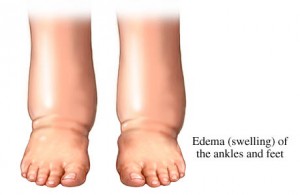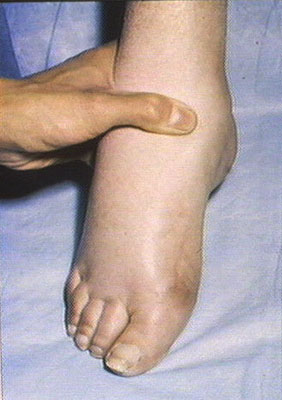
What is edema? Edema is the term used to refer to the accumulation of fluid in the legs or feet. It is often caused by weakening of the veins around the ankles and knees, or an imbalance of fluids between organs in your body. Swelling occurs when you are so tired that you just don't feel like moving. It can also happen when your body loses its ability to retain fluid.
Swelling can be caused by several things. Sometimes, swelling occurs due to excessive stress on your body. Swelling usually occurs due to gravity, especially from sitting for too long or standing in one place. Your body naturally becomes weak due to this, and fluids leak out of it. Swelling can also occur due to weak heart valves, a condition known as venous insufficiency. Other causes are excessive fluid retention in the liver and lungs, dehydration, overuse, or injury to the legs. You can find more information about this on the website Bupa.
The main symptom of edema is a feeling of heaviness in the legs after a few minutes of rest. If you take a short walk and then stop, you may develop swelling. The swelling may get worse over time. The main cause of the edema is not yet clear. It is impossible to say exactly what it is.
While some people think that edema only happens to people who gain weight, there have been cases of people losing weight and gaining back the weight that they lost. Also, people who exercise on a regular basis are prone to developing this condition. It is most common in people with diabetes and may be genetically inherited.
Most people who have been diagnosed with edema symptoms tend to ignore them. There are no real ways to avoid the problem; if you suffer from edema, it is best to keep your weight under control. However, there are some things you can do to minimize the symptoms. To help reduce the discomfort you feel, you can wear compression stockings or orthotics in hot weather or during the day.
Another way to reduce the effects of edema is to drink plenty of water. You should drink at least eight glasses of water per day to help replace lost fluids. Also, you can try to avoid eating fatty foods, caffeine, and other foods that may irritate the skin, such as chocolate, tomato sauce, onions, spices, and cheese.

It is also a good idea to avoid foods that may contain fat, such as cheese, onions, or margarine
You should also avoid foods high in fat such as potato chips, candy, ice cream, and other foods that may clog your arteries.
Try to avoid strenuous physical activities. If you have to stand or walk a lot, take breaks and move around a lot. If you sit for a prolonged period of time, sit in a recliner or bed. Avoiding strenuous activity is the most important thing you can do to reduce the symptoms of edema, and it will give you a chance to rest and recover.
The next thing you can do to minimize your edema symptoms is to increase your daily amount of fluids. Drinking more liquids such as water and juices helps keep your body hydrated and will prevent the formation of scar tissues that are one of the symptoms of edema.
Avoid alcohol and drugs. They can both dehydrate the skin and cause damage to the blood vessels in the body, which will result in an increase in swelling.
Try to avoid exercising if you have this condition. The more physically active you get, the more fluids and heat your body lose through perspiration. When your body is dehydrated, it will retain more fluid and heat, and it could lead to a build-up of pressure.
Finally, you should try to avoid certain medications that can cause the condition. These include certain medications used for high blood pressure, depression, liver and kidney disease, diabetes, and asthma.